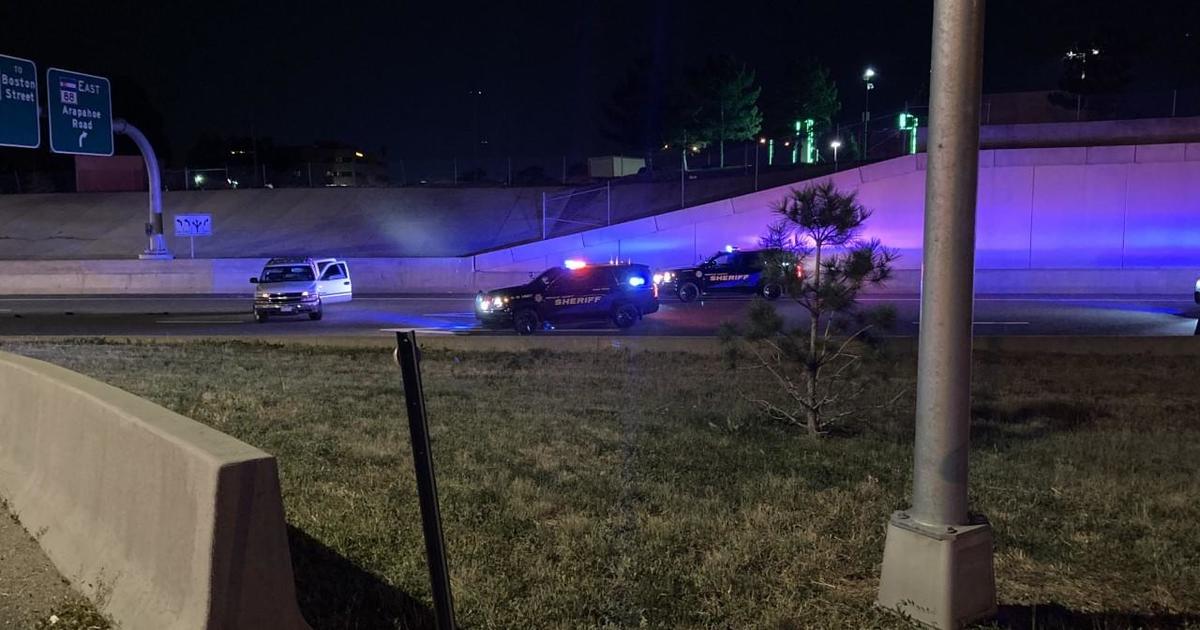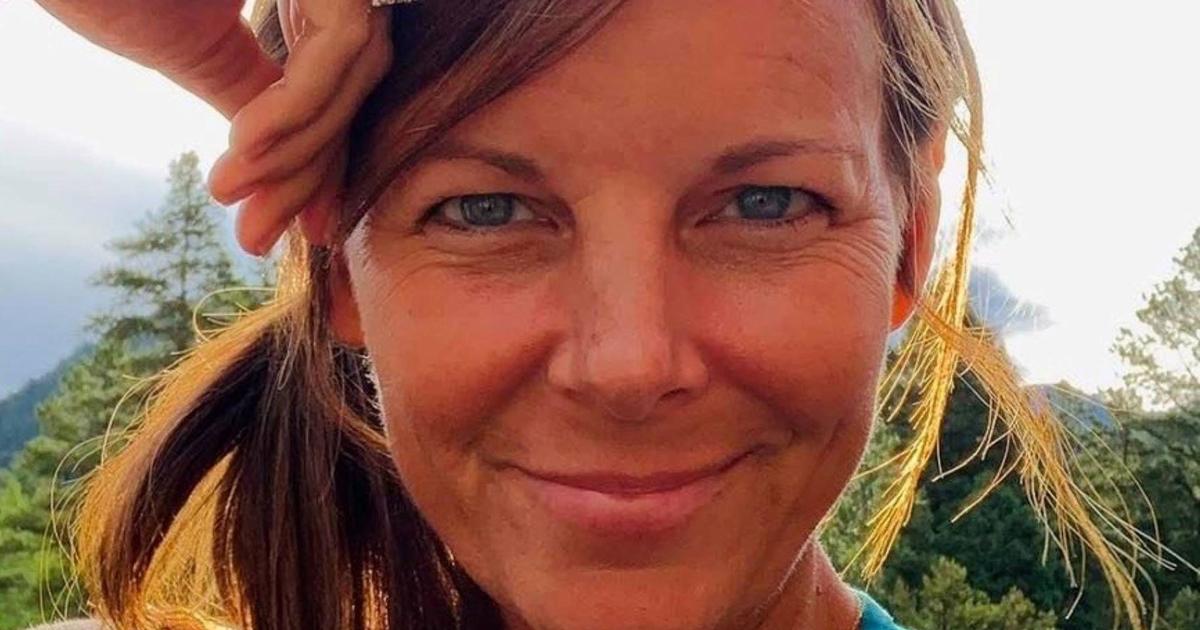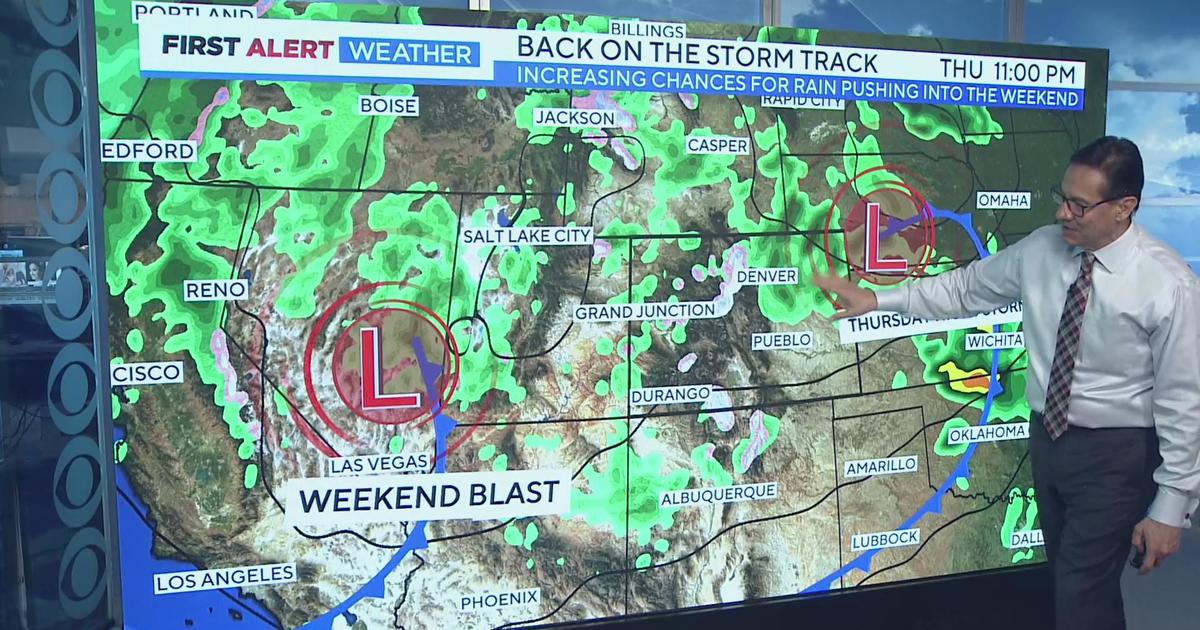Colorado Springs Court For Veterans Persists 5 Years On
COLORADO SPRINGS, Colo. (AP) — A soldier's post-war crime convinced a Colorado Springs lawyer something had to change.
Public defender Sheilagh McAteer represented Kenneth Eastridge, an Iraq war vet charged in the 2007 slaying of a fellow Fort Carson soldier off base. Eastridge was convicted of accessory to murder and sentenced to 10 years in prison.
The experience prompted her to look for ways to keep vets charged with much lesser crimes out of prison, McAteer said. In 2010, she helped found one of the nation's first veterans trauma courts.
More than 250 vets have enrolled in the Colorado Springs court. Nearly half have successfully completed the program. Others are still working their way through. There have been a handful of dropouts.
The courts often sentence veterans to closely supervised probation and require therapy for PTSD.
Judge David Shakes, an Army veteran, presides over Colorado Springs' veterans court. He works with lawyers, probation officers and mentors to get defendants to court or to home from detox. He turns to the Veterans Administration when he orders treatment for PTSD or alcohol and drug dependence.
Shakes lets out occasional cheer of "hooah!" while presiding. With his bright voice and upbeat delivery, he sounds like a coach, his personal interest evident in who is keeping doctor's appointments or going to Alcoholics Anonymous meetings.
In one session, a veteran explained that he'd missed a parole appointment to give a urine sample because he'd forgotten until it was too late.
"What did you think when you realized how late it was?" Shakes asked.
The veteran offered the expletive he said crossed his mind, then added: "Sorry. I know I'm not supposed to say that in court." Shakes mildly agreed the language was inappropriate and moved on.
The court addresses mental health issues that the military and the VA cannot meet alone, supporters say. Others say too little is known to conclude that the approach works.
Alex Taus, however, said the court saved his life.
Taus, 27, joined the Army in 2007 and returned from Iraq angry and anguished after seeing a friend killed. He drank heavily, argued often and ignored pleas from family and friends to seek counseling. He was arrested after flashing a gun during a drunken bar argument in 2012.
Shakes sentenced Taus to more than two years' probation. Now, Taus is taking university business courses and volunteering as a mentor for his old court.
Daniel Warvi, a Colorado-based spokesman for the VA, said the Colorado Springs court helps with "access challenges" at the VA, which has been criticized for long wait times for medical care.
Michelle Slattery, a researcher at the University of Colorado at Colorado Springs, said she wonders whether participants facing misdemeanors have the motivation to stay with a program in which they must keep a dozen or more appointments every week for regular urine tests or Alcoholics Anonymous meetings. While acknowledging her sample size is small, Slattery said her initial studies suggest PTSD rates among graduates of the Colorado Springs court are easing, and recidivism is low.
Julie Baldwin, a criminal justice professor who has studied veterans courts at the University of Arkansas and Missouri State University, identified more than 100 such courts for a 2013 study and now counts more than 200. Few jurisdictions track how many active or former military are involved with the justice system, she said. Recidivism rates, which must be computed over years, are also elusive.
By Donna Bryson, AP Writer
(© Copyright 2015 The Associated Press. All Rights Reserved. This material may not be published, broadcast, rewritten or redistributed.)



